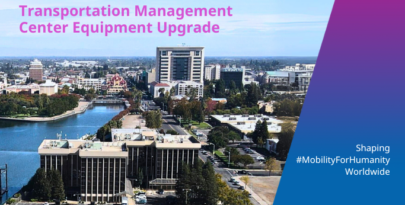In early 2024, the Utah Department of Transportation (UDOT) and its Transportation Technology Group began research, design, and test efforts for a Battery Backup System (BBS) tailored for Intelligent Transportation System (ITS) operations. The BBS needed to perform in extreme environmental conditions, with a minimum four-hour power supply capability. As part of its culture and commitment in taking a leadership role for better mobility, a strong economy, and connected communities, UDOT is known for proactively evaluating and deploying leading-edge transportation infrastructure and ITS technologies to enhance safer and more sustainable mobility.
For UDOT, an ongoing mobility challenge is the state’s renowned but extreme geography that poses some unique operational challenges. One challenge includes the climate and its impact on power disruptions to highway infrastructure. At critical locations, power outages to traffic signals impacts the safety for all roadway users, including emergency vehicles and first responders. Therefore, UDOT sought out a BBS solution that could perform at extreme temperatures ranging from 0° to 140° Fahrenheit where traditional lead-acid battery-based systems did not perform well. Traditional lead-acid batteries often experience low to no energy output at those lower temperatures and significant lower cycle lifespan issues at the higher temperatures. Another challenge includes remote deployments. UDOT required that the BBS solution have a five-to-eight-year lifespan with minimal to no maintenance and seamless integration with existing solar array sites. The BBS solution ultimately had to meet elevated standards necessary to deliver power reliably in Utah’s diverse landscape and highly variable climates.
Through UDOT’s Transportation Technology Group’s collaboration program with academia, BBS testing was a joint effort with Brigham Young University (BYU). The evaluation focused on maintaining power to intersections and locations that combined Closed-Circuit Television (CCTV) and UDOT’s remote-accessed Traffic Management System (TMS). For UDOT, the combination of CCTV and TMS at strategic roadway locations is particularly crucial operationally to efficiently manage and optimize traffic flow in real time.
The evaluation found that Econolite’s ZX graphene Super Capacitor battery module, manufactured by TechPower Developments, Inc., and Uninterruptible Power Supply (UPS) controller solution exceeded all requirements for a new proposed BBS solution. Econolite’s Super Capacitor provided up to 9.25 hours of run time with virtually no change in energy output throughout the evaluation’s temperature range. Additionally, the solution supported a dashboard for remote access to information on the Super Capacitor’s status provided by the UPS. The dashboard can also be used to monitor the solar-powered sites with data provided by the existing Morningstar Charge Controllers.
The Econolite Super Capacitor made it a perfect fit for the UDOT project. The Super Capacitor requires zero maintenance, has zero impact on the environment, offers up to a 30-year lifespan with up to one million charge/discharge cycles, and an effective temperature operating range of -40° to 157° Fahrenheit. In addition, the entire solution is rack mountable in standard 19-inch component racks.
Based on the evaluation, UDOT found Econolite’s Super Capacitor BBS system was an ideal solution for maintaining power to sites during power outages. The design proved to be far more sustainable by eliminating the BBS maintenance and lead-acid battery replacement costs by using the Super Capacitor’s chemical-free battery.
As a result of the BBS evaluation, UDOT has placed a substantial initial order for Econolite Super Capacitor systems and has plans to incrementally upgrade its BBS to the Super Capacitor solutions statewide.



